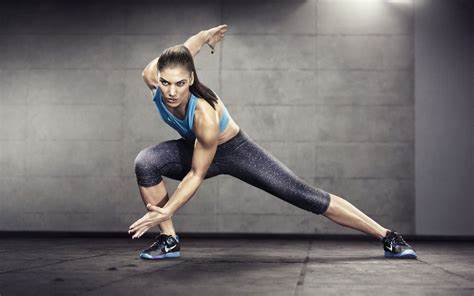The Muscles are much more than just a way to achieve a bulky figure but they are critical to almost every function of your body.
In fact, your muscles are essential for movement, stability, strength, and even vital processes like breathing and circulation.
Here’s a breakdown of the incredible role muscles play in your body and why they’re so important.
1. Muscles Enable Movement
Muscles and bones work together as part of the musculoskeletal system. While bones provide the structure and support, muscles generate the force needed for movement.
There are more than 650 muscles in the human body, and they work in pairs: one muscle contracts while the other relaxes to create movement. This is how you can walk, run, jump, and perform everyday tasks.
Example: When you want to lift your arm, the biceps contract to pull the forearm up, while the triceps relax to allow that movement.
2. Types of Muscles and Their Functions
Skeletal Muscles: These are the muscles that attach to your bones and are responsible for voluntary movements (like lifting weights, walking, or picking up objects). Skeletal muscles are the ones most people think about when they think of “muscles,” and they can be trained to get stronger and more defined.
Smooth Muscles: These are involuntary muscles that control the movement of organs and blood vessels. For example, they help move food through your digestive system and regulate blood flow.
Cardiac Muscle: Found only in the heart, cardiac muscle is responsible for pumping blood throughout the body.
3. Control Posture and Stability
Muscles don’t just help you move—they also help stabilize your body and maintain posture. The muscles of your core (like the abdominals, obliques, and lower back) are crucial for supporting your spine and preventing injury.
Without strong, functional muscles, you wouldn’t be able to sit up straight, stand for long periods, or even walk properly.
4. Improve Strength and Endurance
Building muscle through strength training (like lifting weights, doing bodyweight exercises, etc.) doesn’t just make you look stronger—it increases your functional strength, making everyday activities easier.
For example, stronger muscle allow you to carry groceries, lift heavy objects, climb stairs, and perform manual labor without exhausting yourself.
Muscles also improve endurance and overall athletic performance. The stronger and more efficient your muscles are, the longer you can sustain physical activities without tiring.
5. Metabolism
It plays a significant role in your metabolism. Muscle tissue burns more calories at rest compared to fat tissue. This means that the more muscle you have, the higher your basal metabolic rate (BMR)—the number of calories your body burns while at rest.
Strengthening muscles through exercise can help you manage your weight, improve your body composition, and boost your metabolism.
6. Muscles Support Joint Health and Flexibility
Muscles also protect your joints by absorbing shock and reducing the risk of injury. Strong muscles around the knees, hips, and shoulders, for example, help support your joints during movement.
Stretching and flexibility exercises help maintain the elasticity of muscles, preventing stiffness and improving range of motion.
7. Muscles Aid in Vital Functions
Muscles are not only involved in physical movement—they also play roles in critical body functions such as:
Breathing: The diaphragm (a muscle) helps you breathe by contracting and expanding the lungs.
Circulation: Your heart, which is a muscle, pumps blood throughout your body, and skeletal muscles assist with venous blood flow (helping blood return to the heart).
Digestion: Smooth muscles in the stomach and intestines help move food through your digestive tract.
8. Muscle and Mental Health
Physical activity, particularly strength training, has been shown to improve mental health by releasing endorphins (feel-good hormones), reducing stress, and increasing confidence.
Having a strong, functional body also leads to greater self-esteem and overall well-being.
9. Musles and Longevity
Maintaining muscle mass as you age is important for overall health and independence. Older adults who have more muscle mass tend to have better balance, mobility, and fewer falls or injuries.
Regular strength training can also help prevent muscle loss (sarcopenia) that naturally occurs with aging.
V-FIT GYM AND STRENGTHENING MUSCLESs
It is vital for much more than achieving a “bulky” physique. They are essential for movement, stability, posture, and overall health. Whether you’re lifting weights, running, or simply standing, your musscles are always working to support you.
A well-rounded fitness program that includes strength training, cardio, and mobility exercises will help you build and maintain yourmuscle for better health, improved fitness, and a more active lifestyle. So, when you train at a gym like VFit Gym or any other, remember that you’re not just building a more defined body—you’re also improving your overall musculoskeletal health, boosting your metabolism, and increasing your quality of life.







